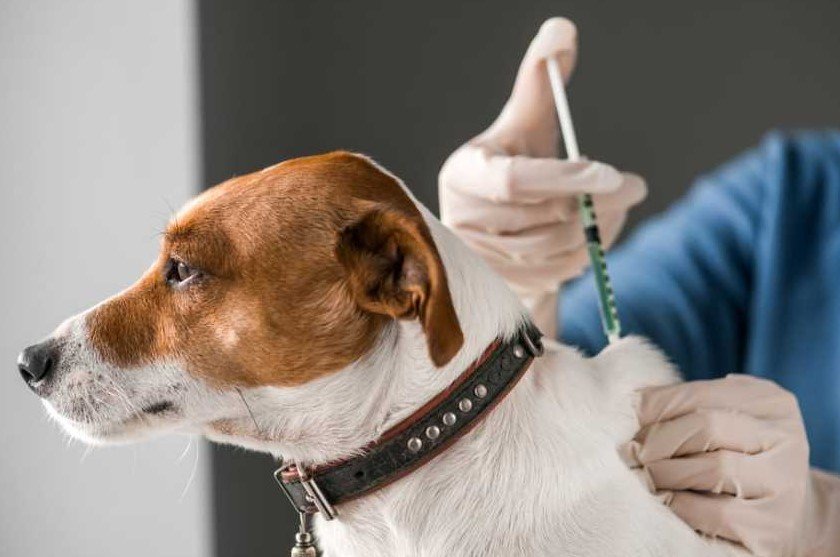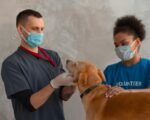Are you prepared for the unexpected expenses that come with being a dog owner? We all want our furry friends to stay healthy and happy, but what about the financial aspect of their well-being? One crucial consideration is the cost of rabies shots for dogs. These vaccinations play a vital role in protecting your beloved pet from this deadly disease. But just how much should you expect to spend on these preventive measures?
Budgeting for your pet’s health is essential, and understanding the significance of considering the cost of rabies shots is a key part of it. By exploring the financial side of keeping your dog protected from rabies, you can plan accordingly and ensure their safety without breaking the bank. So, let’s dive into this topic and shed light on how much are rabies shots for dogs actually worth.
Knowledge about costs empowers you to make informed decisions. Let’s explore this aspect further!
What Is Rabies and How Does It Affect Dogs?
Rabies is a deadly viral disease that poses a serious threat to dogs’ health. The virus primarily affects the nervous system of infected canines, leading to severe consequences if left untreated.
The rabies virus attacks a dog’s nervous system, causing inflammation and disrupting normal brain function. This can result in behavioral changes, aggression, excessive salivation, difficulty swallowing, and even paralysis. As the disease progresses, dogs may experience seizures, disorientation, and ultimately death.
Untreated rabies in dogs can have dire consequences. The virus is transmitted through the saliva of infected animals, typically through bites or scratches. If a dog contracts rabies and does not receive prompt medical attention, it can spread the virus to other animals or humans through its saliva.
To prevent rabies in dogs, vaccination is crucial. Regular rabies shots are recommended by veterinarians as part of routine pet care. Vaccination not only protects individual dogs but also helps control the spread of this dangerous disease within communities.
Dangers of Unvaccinated Dogs: Exploring Rabies Transmission
Unvaccinated dogs pose significant risks. Understanding how this deadly virus spreads and the role that infected animals, including dogs, play in its transmission is crucial. Let’s delve into the dangers associated with unvaccinated dogs and their contribution to the spread of rabies.
Infected animals can transmit the rabies virus through various means. Here are some common modes of transmission for canine rabies cases:
-
Bites: When an infected animal bites a healthy dog, the saliva containing the virus enters their bloodstream.
-
Scratches: Even minor scratches from an infected animal can provide an entry point for the virus.
-
Saliva contact: Direct contact with an infected animal’s saliva, such as sharing food bowls or toys, can lead to transmission.
Preventing the spread of rabies through vaccination is of utmost importance. Vaccinating your dog not only protects them but also helps curb the overall prevalence of this dangerous disease. Here’s why vaccination plays a vital role:
-
Protection: Vaccination provides immunity against rabies, safeguarding your furry friend from potential infection.
-
Community safety: By ensuring your dog is vaccinated, you contribute to reducing the risk of rabies spreading within your community.
-
Legal requirements: Many regions have legal obligations mandating pet owners to vaccinate their dogs against rabies.
Why Vaccinating Your Dog is Crucial for Public Health
Vaccinating your dog against rabies is not only crucial for their well-being but also plays a vital role in protecting public health. By ensuring that your furry friend receives the necessary shots, you contribute to preventing widespread outbreaks and safeguarding both human and animal populations.
Herd immunity, a concept that relies on the majority of a population being immune to a disease, is an essential factor in controlling the spread of rabies. When a significant number of dogs are vaccinated, it creates a protective barrier that helps shield vulnerable individuals from infection. This collective defense mechanism prevents the disease from gaining momentum within communities.
Responsible pet ownership goes hand in hand with vaccination. By taking proactive measures to protect your dog through immunization, you demonstrate your commitment to their well-being as well as the safety of others around them. Vaccination acts as an effective preventive measure, reducing the risk of transmission and potential harm caused by rabid animals.
Failure to vaccinate dogs can have severe consequences for public health. Unvaccinated dogs pose a significant threat as potential carriers of rabies, which can be transmitted to humans through bites or scratches. The impact on human populations can be devastating, leading to infections that may result in serious illness or even death.
Cost of Rabies Shots for Dogs: Budgeting for Your Pet’s Health
Regular rabies vaccinations are a crucial part of keeping your dog healthy, but it’s important to understand the financial implications that come with them. The American Kennel Club said that a first shot is around $15 to $28, while the three-year rabies shot can cost somewhere between $35 to $60. Here are some key points to consider when budgeting for your pet’s health:
Factors Affecting the Cost of Rabies Shots
The cost of rabies shots can vary depending on several factors, such as:
-
Location: Prices may differ between cities or regions.
-
Veterinary Clinic: Different clinics may have varying fees for their services.
-
Vaccine Type: There might be different types of vaccines available at different prices.
Budgeting Tips for Affording Necessary Vaccinations
To ensure you can afford the necessary vaccinations for your furry friend, here are some budgeting tips to keep in mind:
-
Research and Compare Prices: Look into different veterinary clinics and compare their fees for rabies shots.
-
Consider Pet Insurance: Explore pet insurance options that cover vaccination costs.
-
Plan Ahead: Set aside a small amount each month specifically for your pet’s healthcare needs.
The Long-Term Savings of Preventative Care
While the cost of regular rabies shots may seem like an expense, they actually contribute to long-term savings by preventing potentially expensive medical treatments down the line. By vaccinating your dog against rabies, you reduce the risk of costly complications associated with this dangerous disease.
Where to Get Rabies Shots for Dogs?
Obtaining reliable rabies shots is of utmost importance. But where can we find trustworthy veterinary clinics that offer these vaccinations? Let’s explore some options and factors to consider when choosing the right clinic for your dog’s vaccination needs.
Exploring Options for Obtaining Rabies Vaccinations from Reputable Sources
-
Local veterinary clinics: Researching nearby clinics is a great starting point. Look for established clinics with positive reviews and recommendations from fellow pet owners.
-
Animal shelters: Many animal shelters provide low-cost or even free rabies shots as part of their community outreach programs. It’s worth checking if any shelters in your area offer this service.
-
Mobile vaccination clinics: Some areas have mobile vet clinics that travel to different neighborhoods, offering affordable vaccinations. Keep an eye out for these convenient options.
Exploring Different Types of Rabies Vaccines for Dogs
There are various types of vaccines available in the market. Understanding the differences between these options can help you make an informed decision about which vaccine is most suitable for your dog’s specific needs.
-
Traditional vs. newer vaccine options:
-
Traditional vaccines: These have been around for a long time and provide effective protection against rabies. They typically require annual boosters to maintain immunity.
-
Newer vaccine options: Advancements in veterinary medicine have led to the development of longer-lasting vaccines, reducing the frequency of booster shots required. These newer vaccines offer extended protection for up to three years.
-
-
Duration, efficacy, and potential side effects:
-
Traditional vaccines: While they require more frequent boosters, traditional vaccines have a proven track record of effectiveness. However, some dogs may experience mild side effects such as soreness at the injection site or temporary lethargy.
-
Newer vaccine options: These vaccines offer longer durations of immunity but may come with a slightly higher risk of adverse reactions, although severe side effects are rare.
-
Conclusion
In conclusion, rabies shots for dogs are a crucial aspect of responsible pet ownership. By understanding the importance of vaccinating your dog against rabies, you can protect their health and ensure the safety of those around them.
Throughout this article, we have debunked common misconceptions about rabies shots and explored various aspects related to this topic. We discussed what rabies is and how it affects dogs, emphasizing the dangers of leaving your dog unvaccinated. Recognizing the symptoms of rabies in dogs is essential for early detection and timely treatment.
Not only does vaccinating your dog protect their well-being, but it also plays a significant role in safeguarding public health. Rabies is a zoonotic disease that can be transmitted from animals to humans, making it vital to prevent its spread through proper vaccination.
While considering the cost of rabies shots for dogs, it’s important to prioritize your pet’s health within your budget. Finding a reliable veterinary clinic that offers affordable yet quality vaccinations ensures that you can provide optimal care for your furry companion.
Remember that there are different types of rabies vaccines available for dogs, so consult with your veterinarian to determine which option suits your pet best. They will guide you on the appropriate vaccination schedule based on local regulations and individual circumstances.
Make sure to take action today by scheduling an appointment with a trusted veterinarian to get your dog vaccinated against rabies. By doing so, you not only protect their well-being but also contribute to maintaining public health.
FAQs
[faq-schema id=”1786″]

















